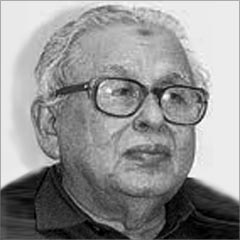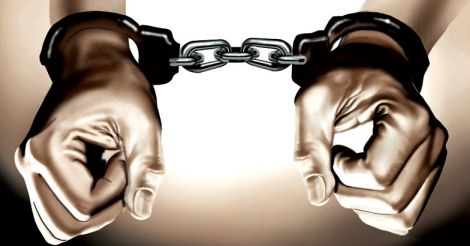Of the 7,076 prisoners in Kerala, 4,361 are undertrial detainees, according to documents obtained under the Right to Information Act. At the same time, Bollywood actor Salman Khan walked out on bail as soon as he was convicted in a hit-and-run case.
Is our legal system capable of ensuring justice to the common man? Is it not possible to change the system whereby so many undertrial prisoners languish in jails for a long time? Administrators of law and justice have to strive hard to ensure the accused free and fair investigation and a speedy trial.
Who shall we hold answerable when many of the undertrial prisoners are proved innocent after long periods of detention. The government, the police and the judiciary should be guarded against the conversion of democratic laws into black Acts.
Laws such as the Unlawful Activities (Prevention) Act tend to ignore the provisions of the Universal Declaration of Human Rights and the Fundamental Rights and the protection offered to the accused by the Constitution of India.
The UAPA followed the Prevention of Terrorism Act in letter and spirit but ignored the provisions that authorised disciplinary actions against investigating agencies that violates law and ensured compensation for people who faced false accusations. This law puts the onus on the accused to prove he is innocent. Anyone accused of being a terrorist will continue to be in jail as long as he fails to prove his innocence, whatever may be the truth. This goes against the basic tenets of the legal system.
Tens of thousands of people, including youngsters, languish in jails for years thanks to such lacunae in law.
There are enough laws to handle terrorists and those who work against the country’s sovereignty and integrity. Nobody can dispute that such people deserve strict punishment. But to lock away innocent people in that name is nothing but a violation of human rights.
Our country has witnessed so many cases where people have been acquitted after years of imprisonment as undertrial prisoners. As many as 174 people arrested by the Delhi special cell under serious charges were later acquitted by the court, an RTI query has revealed.
PDP leader Abdul Nasser Madani was acquitted after seven years of imprisonment related to the Coimbatore blast case. He was again put behind bars, alleging he was involved in a conspiracy in Bengaluru. The prosecutor, who had told the Supreme Court that the case would be wound up in four months, is now asking for two more years.
The court allowed the Madani to go to Kerala for five days to visit his sick mother, overcoming the objections of the prosecution, as the proceedings in the case prolonged.
We have to ensure that laws such as UAPA are not misused. The trauma and stigma suffered by the innocent people who have spent a long time in prison are beyond words. Most of them would have had huge financial loss or lost their jobs. Students may have had to drop out of school or college. The legal system at least has to ensure that innocent people are compensated adequately. We have to implement a system to fasten trials in the existing cases.
(The writer is a former judge of the High Court of Kerala)




































































































































































































































































































































































































































































































































































































































 There are enough laws to handle terrorists and those who work against the country’s sovereignty and integrity. Picture for representational purpose
There are enough laws to handle terrorists and those who work against the country’s sovereignty and integrity. Picture for representational purpose
Disclaimer
The comments posted here/below/in the given space are not on behalf of Manorama. The person posting the comment will be in sole ownership of its responsibility. According to the central government's IT rules, obscene or offensive statement made against a person, religion, community or nation is a punishable offense, and legal action would be taken against people who indulge in such activities.